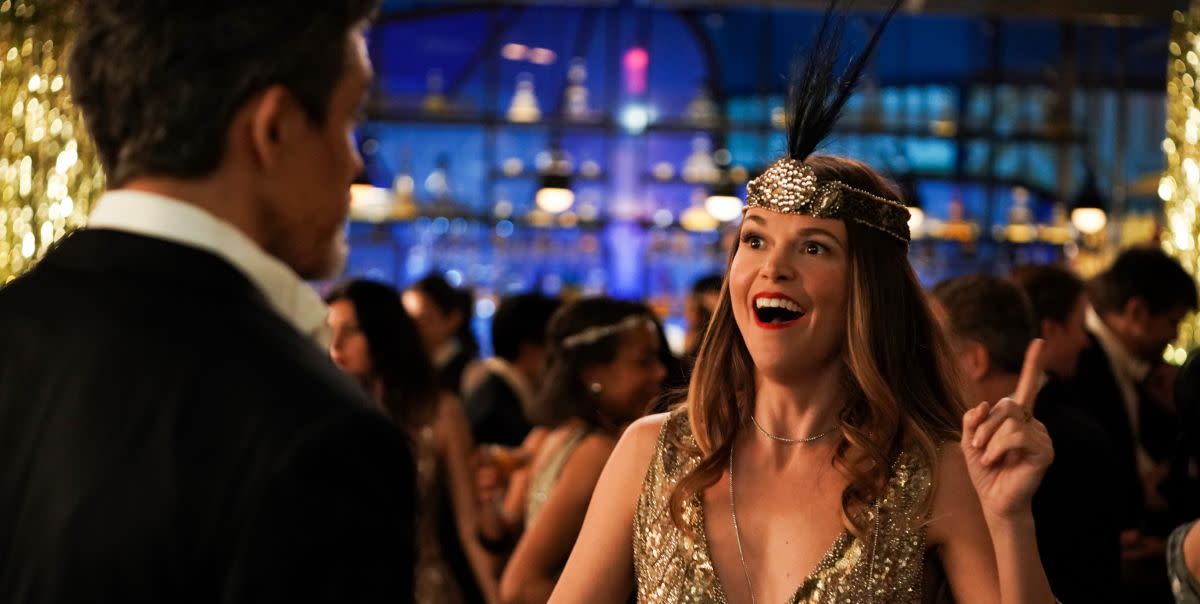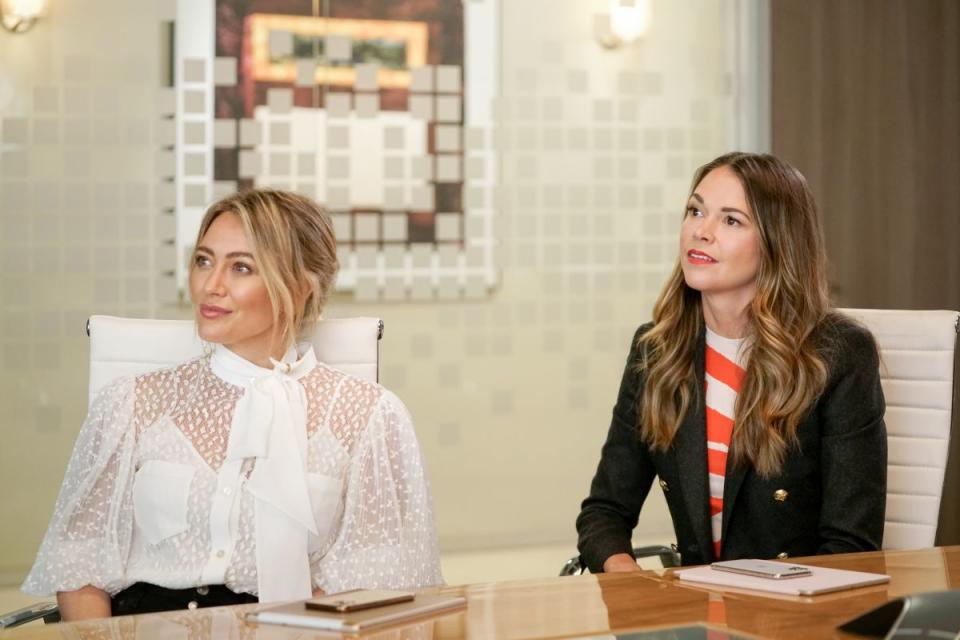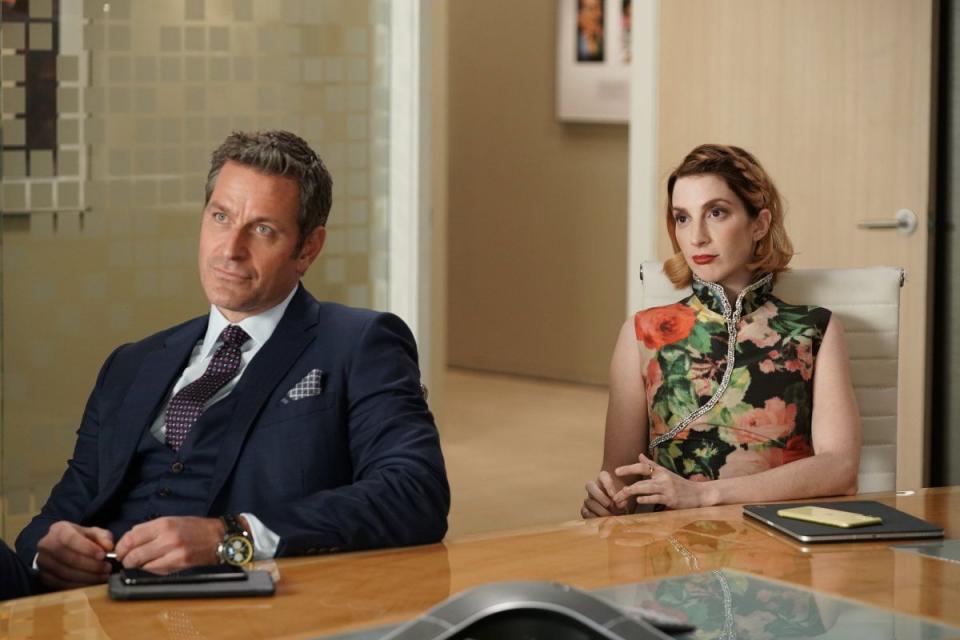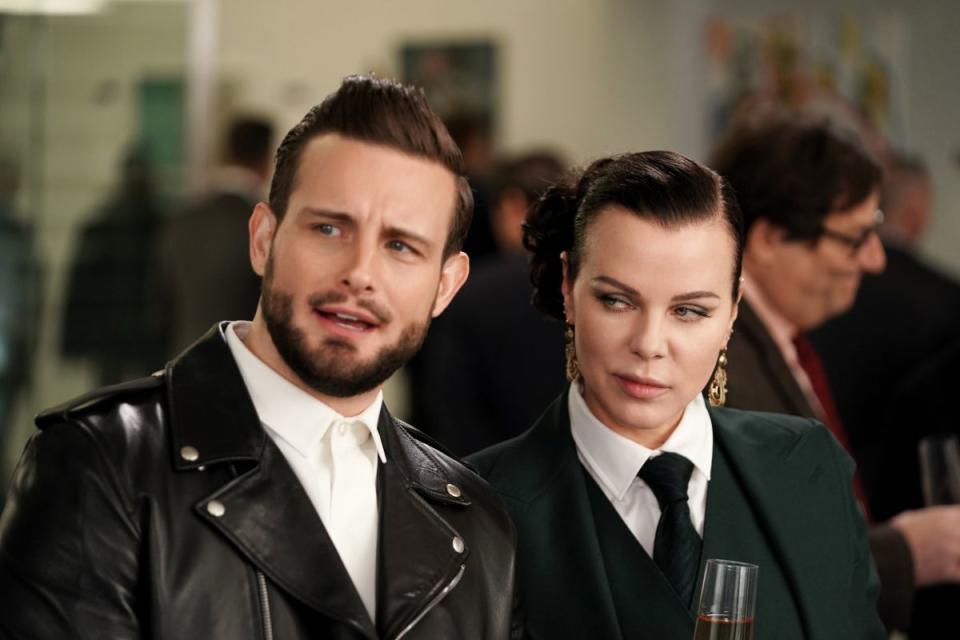How Does Younger Stack Up to Real-Life Book Publishing?

“At first I felt like the TV show Younger hit a bit too close to home,” I tweeted in 2015, “but now I think maybe the creator stole my diary or something?”
Over the course of seven seasons—the latest and final one airing now—Younger has been my favorite form of fantasy TV-watching; it seems to have been tailored to my weirdly specific desires. I, a young Gen Xer and former editorial assistant who is still deeply ensconced in the book world and its attendant social media and gossip, see so much of myself in Younger’s heroine and her professional quests and inside jokes. The show’s final season, however, feels less realistic than ever and more like a fan fiction version of what book publishing could be.

Liza Miller (Sutton Foster) is a former editorial assistant who, after a divorce and an attempt to break back into the business at the age of 40, encounters the ageism that very much exists in book publishing. In recent years we’ve seen the firings of some of the most powerful and established women executives in corporate publishing, and while the industry has become increasingly more female, it’s unclear how many women will actually make it all the way to retirement.
Neither a Bright Young Thing nor an accomplished old timer, Liza pretends to be 26 in order to get a job as the assistant to Diana Trout, the marketing director (played with singular ferocity by Miriam Schor who is sorely missed in season 7) at Empirical, the publisher where almost everyone on the series works. Liza’s big con results in many seasons of miscommunications and hijinks as she swiftly rises through the ranks at Empirical, all while wearing a goals-worthy if entirely too-pricey-to be-realistic wardrobe.

So much fodder for parody exists in the book world, and Younger has consistently nailed some of its easiest targets: the authors. Empirical’s publishing roster includes the likes of Edward LL Moore, a beloved fantasy writer who is desperately late in delivering his final manuscript and is also entirely too horny (got any guesses who they’re trolling?); Anton Bjornberg (Thorbjørn Harr), a pompous Karl Ove Knausgaard-type who is both incredibly self-serious and happy to spend a PEN Awards dinner canoodling with Kelsey (Hilary Duff); and Sebastian (Matthew Morrison), a shepherd in the Hudson Valley who seems primed to ride the back-to-the-land essay collection trend until (I wish this were not literal) he gets caught with his pants down with one of his sheep.
Through all of its literary skewering and plot lines developed from publishing trends, Younger maintains all of the starry eyed glamour of the book world, and very little of its heartache. Younger is still one of the largest perpetuators of the myth that the Brooklyn neighborhood of Williamsburg is currently an affordable haven for young creative types, especially ones who earn meager publishing salaries. And for all the impending dread that Empirical might not weather its financial difficulties (very real!), its employees still manage to have seemingly limitless expense accounts, access to big, beautiful offices with scenic views, and invites to book parties that evoke an earlier era when publishing was still a rich person’s pastime rather than a corporate enterprise.

Never was the unreality of Younger more apparent than in its final season, which depicts a world in which the coronavirus pandemic has never happened. There is nary a mask to be seen, and none of the Empirical employees have been living and working from home, attending marketing meetings over Zoom, or worrying about childcare for more than a year.
Nor is there a hint of a reckoning related to Black Lives Matter, the movement that manifested itself in the book world in the form of bestselling anti-racist reading lists and major publishers instating new employee diversity and inclusion initiatives. That such noble goals are undermined by the fact that all major publishers continue to publish and distribute books by a variety of white supremacists is an issue for which publishers are only beginning to be called out. Publishing employees have begun to collectively point out the hypocrisies of their workplaces, a budding movement that would be very difficult to convey on Younger, where the office at Empirical only seems to contain six or so people at any given time.
Even Younger’s foray into the terrain of so-called cancel culture feels wrong. The victim of cancellation is Maggie (Debi Mazar, criminally underused this season), who used a transgender slur in artwork she did in the 1990s and is therefore excoriated on social media in 2021. How strange that the Younger writers chose to create a fake scandal outside the publishing world when the most famous living author of our time is a vociferous transphobe and is still racking up book deals and amassing a fortune.
What season seven gets right: art versus commerce is still a predominant theme in the book world, with Charles (Peter Hermann, charming as ever despite the show’s romantic drama) ever desperate to placate the persnickety board of Empirical. “We’re focused on blockbusters,” he tells Liza and Kelsey when they rave to him about a debut novel. “Now’s not the time for literary fiction.” The spotlight author of the season is once again Quinn Tyler (Laura Benanti, dazzling as always) who bills herself as one of the “good” billionaires, or so Elizabeth Warren allegedly said. Platitudes about success from a very rich person is perennial bestseller material, with bonus points to Quinn for hiring her own outside fact checker, a service that most publishers do not offer in-house.
How bittersweet it is that hope for Liza’s career is now seemingly pinned on an underground reading series she and Kelsey start in Williamsburg, a concept that perhaps was cutting edge back when Liza was actually 26 years old. Even more far-fetched, but very much the fantasy of the moment, is the idea that a subscription model like the one Liza and Kelsey propose (Podcasts! Newsletters! Serial fiction!) can save legacy media, and that venture capitalists would ever see a return on seven-figure investments in a hot new literary startup. Even the most romantic of book people could predict that such arrangements for plucky young (and not-so-young) heroines usually end in tears.
You Might Also Like


